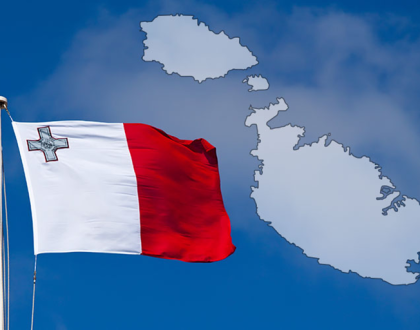The Stability of Malta’s Banking System

Banking in Malta has long been known for its resilience and stability. In this examination, we research into the factors that contribute to the robustness of Malta's banking system, analyzing regulations, economic conditions, and international relationships. Explore how Malta's banks have weathered storms and emerged as a stronghold in the global financial landscape.
Overview of Malta's Financial Landscape
Historical Development of Banking in Malta
To understand the stability of Malta's banking system, it is crucial to research into its historical roots. Malta's banking sector has seen significant evolution over the years, transitioning from a small-scale industry to a prominent player in the global financial arena.
The Role of Financial Services in Malta's Economy
Banking and financial services play a vital role in Malta's economy, contributing significantly to its GDP and providing employment opportunities to the workforce. The sector encompasses a diverse range of financial activities, including wealth management, fund administration, and insurance services.
Malta: The financial services sector in Malta has garnered international recognition for its robust regulatory framework, investor-friendly environment, and strategic geographic location. It continues to thrive as a hub for financial services in the European Union, attracting foreign investment and fostering economic growth.
Key Components of Malta's Banking System
Major Banks and Their Market Share
Now, Malta's banking system is dominated by a few key players. The major banks in Malta include Bank of Valletta, HSBC, and APS Bank. These banks hold a significant market share and play a crucial role in the country's financial stability.
Regulatory Framework Governing Banks
Now, Malta's banking system is governed by a strict regulatory framework set up by the Malta Financial Services Authority (MFSA). This framework ensures that banks operate within the guidelines to maintain stability and protect depositors' funds.
Shareholding requirements, capital adequacy ratios, and risk management guidelines are some of the aspects covered by the regulatory framework. The MFSA conducts regular audits and inspections to ensure that banks comply with these regulations, contributing to the overall stability of Malta's banking system.
Challenges and Risks Facing Malta's Banks
External Economic Influences
One of the significant challenges facing Malta's banks is the impact of external economic influences. Factors such as global economic slowdowns, fluctuations in interest rates, and geopolitical tensions can directly affect the stability and profitability of the banking sector in Malta.
Internal Vulnerabilities
Internal vulnerabilities within the banking system pose a risk to Malta's financial stability. These vulnerabilities may include inadequate risk management practices, high levels of non-performing loans, or exposure to sectors susceptible to economic shocks. Addressing these internal weaknesses is crucial to safeguarding the resilience of Malta's banks.
Facing these challenges and risks requires proactive measures by both regulatory authorities and financial institutions to enhance risk management practices, diversify portfolios, and strengthen capital buffers. By recognizing and addressing these vulnerabilities, Malta's banks can navigate through uncertainties and maintain stability in the face of evolving economic conditions.
Strengthening Measures and Future Prospects
Recent Regulatory Changes
Regulatory changes have been recently implemented to enhance the stability of Malta's banking system. These include stricter capital requirements, improved risk management practices, and enhanced supervision by regulatory authorities.
Initiatives for Banking Stability and Growth
Prospects for Malta's banking system look promising as initiatives are being rolled out to ensure both stability and growth. The government is actively promoting innovation in the sector, fostering collaboration between banks and financial technology firms, and enhancing cybersecurity measures.
This approach not only strengthens the resilience of the banking system but also paves the way for sustainable growth in Malta's financial industry.
To wrap up
Conclusively, the examination of Malta's banking system highlights its strong foundation and stability. With robust regulatory frameworks, prudent risk management practices, and a track record of resilience through economic challenges, Malta's banks have proven to be reliable and secure institutions. Monitoring ongoing developments and maintaining transparency will be crucial in ensuring the continued stability of the banking sector in Malta.
FAQs
What makes Malta's banking system stable?
Malta's banking system is stable due to its robust regulatory framework, prudent risk management practices, and strict oversight by the Malta Financial Services Authority (MFSA).
How have Malta's banks evolved historically?
Malta's banking sector has transitioned from a small-scale industry to a significant player in the global financial arena, contributing substantially to the national economy and offering a wide range of financial services.
What role do major banks play in Malta's financial stability?
Major banks such as Bank of Valletta, HSBC, and APS Bank dominate Malta's banking sector, holding significant market share and contributing to the country's financial stability through their operations and adherence to regulations.
What challenges do Malta's banks face?
Malta's banks face challenges from external economic influences like global slowdowns and geopolitical tensions, as well as internal vulnerabilities such as inadequate risk management practices and high levels of non-performing loans.
What recent measures have been taken to strengthen Malta's banking system?
Recent measures include stricter capital requirements, improved risk management practices, enhanced supervision by regulatory authorities, and initiatives to foster innovation and cybersecurity in the banking sector.
Recommended Posts

Legal Win for Malta’s Citizenship Program
October 4, 2024

Why iGaming Brands Choose Malta
October 4, 2024

Malta Ranks Fifth Among European Islands
October 4, 2024



